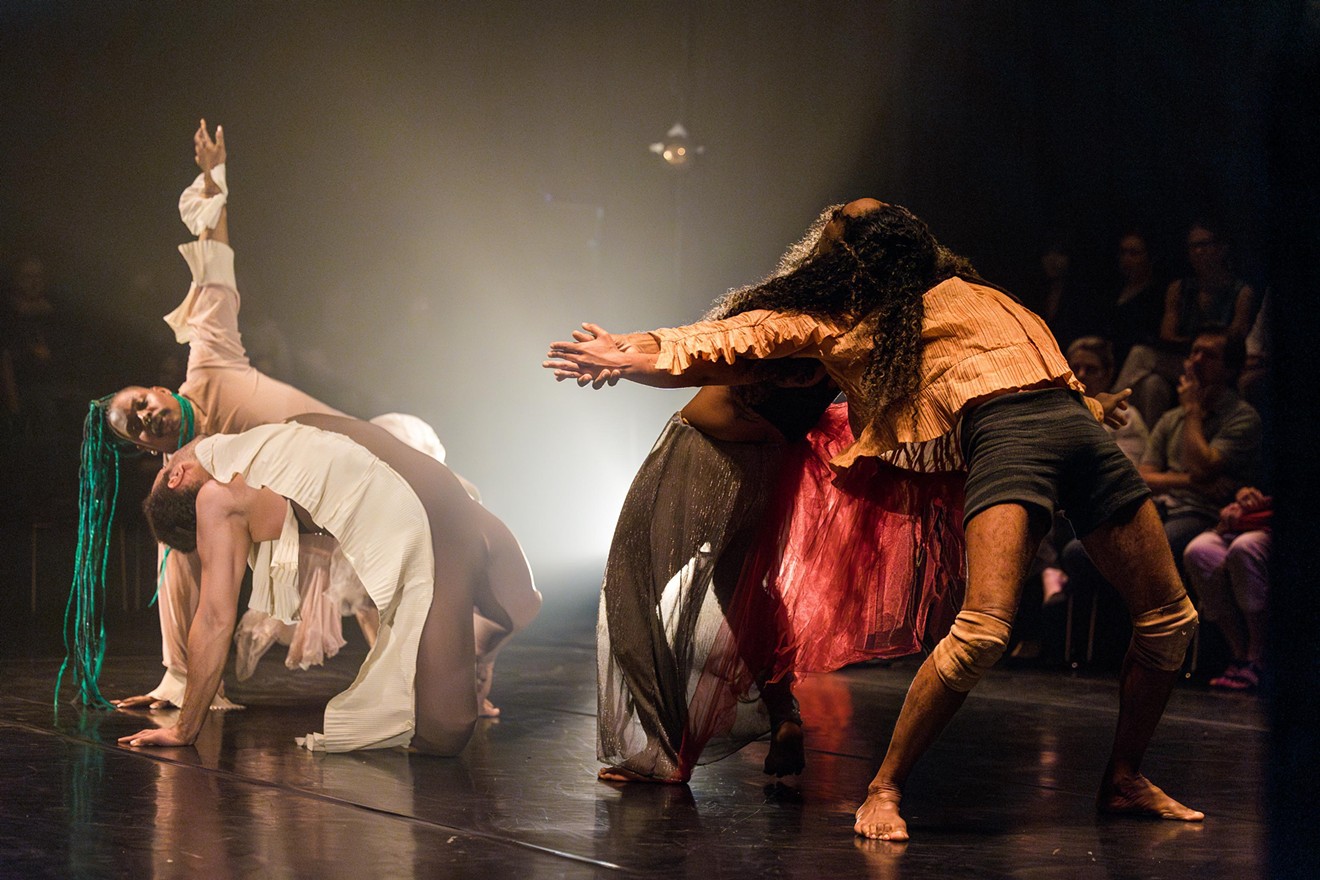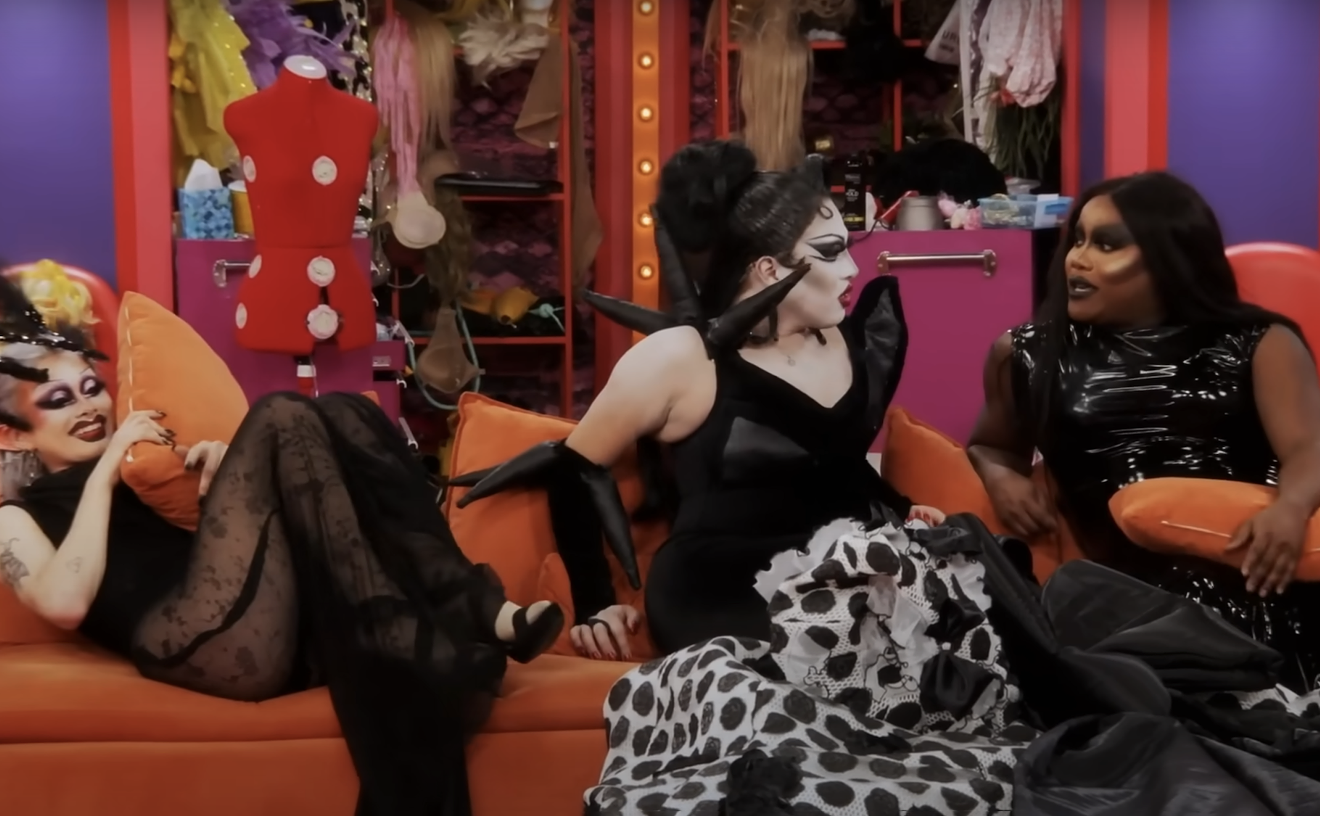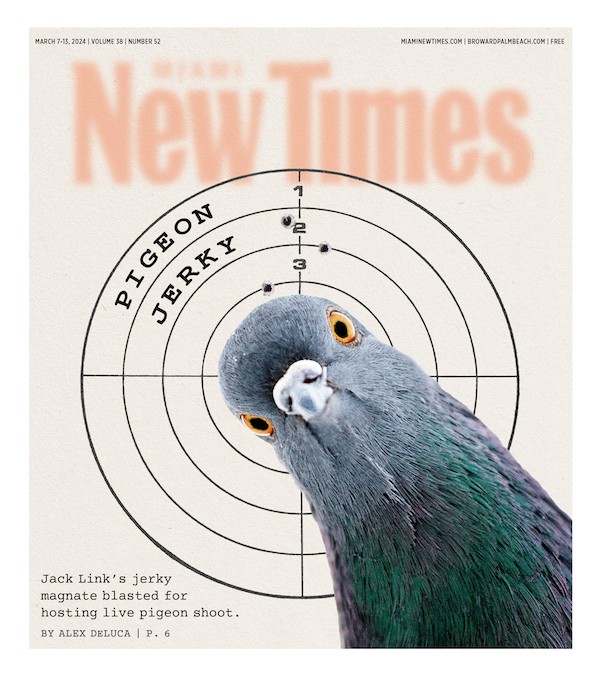In creating "Ten Years from Now," members of the Pioneer Winter Collective, a Miami-based, intergenerational, and physically integrated dance-theater company, found that studying yesterday's choreography informed both their present experiences and their conceptions of the future. The Pioneer Winter Collective presents "Ten Years From Now" at the Sandrell Rivers Theater March 6-7, with a reception to follow each performance.
The program revisits seven works that choreographer and artistic director Pioneer Winter created over the last decade, but don't expect to see the same piece twice. Instead, Winter conceptualizes this show as an "annotated director's cut." Winter and the performers infuse new perspectives and understandings into each dance that cut deeper toward the motivations driving every movement.
"I find nowadays that whenever I'm seeking support for our work, the question that I'm asked is, 'Where will you be five, ten years from now? How will you do this in spite of challenges? How can you guarantee that it'll work?' So, I've not been in the habit of looking back. We've never done a repertory show. It's always been this barreling forward," Winter says. "For me, the realest moment in a work's life is the moment it's first performed, so I assumed that repertory shows would be easier than premieres. I assumed that the work would be repeated, recited, recycled. I'm realizing now that in order to truly move forward, I need to appreciate where we've been. 'Ten Years from Now' explores the power of retrospection: not as mere repetition, but as an important step for my growth as an artist and our work as a company."
Each of this show's seven dances is a pas de deux, or duet performed by a pair of dancers. Winter says this particular format showcases what makes each dancer special and distinctive.
"Relationships, contrast, and differences are the biggest things that a pas de deux brings out. You notice distinct differences in people's bodies, the way they move, the way they respond to something," Winter says. "In a lot of these duets, the relationship that the two performers have creates or instigates this third body that wouldn't have been there were it not for both of them at the same time doing this thing. It's a conjuring almost."
Aeon de la Cruz, who dances in two of the show's seven numbers, explains the creative process leading up to this production as one of extraction: grasping onto the "essence and intention of each duet and allowing all else to naturally evolve or change as needed."
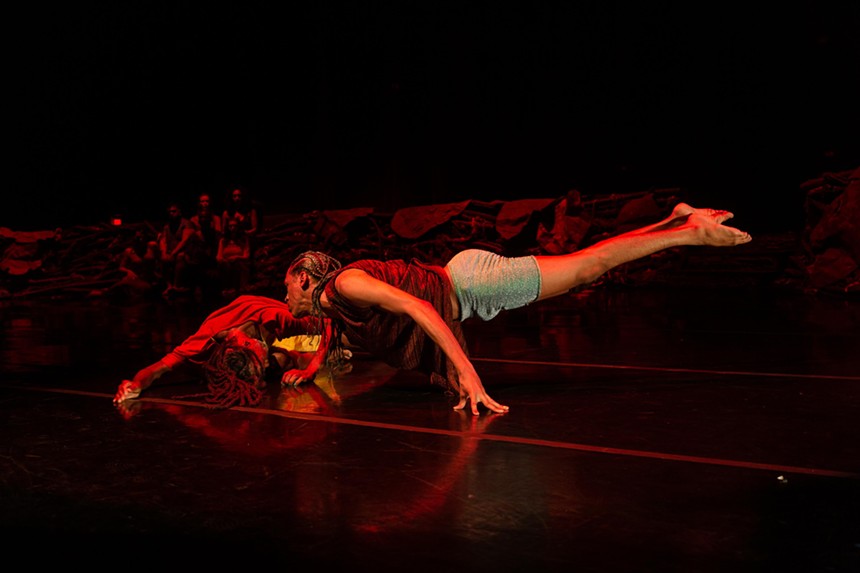
Aeon de la Cruz says performing with the Pioneer Winter Collective is a demanding yet rewarding experience.
Photo by Passion Ward
The oldest work of "Ten Years from Now's" seven duets, Mother-Son (Days), originally premiered in 2012, with Winter dancing this duet alongside collaborator Ana Bolt. Pairing readings from Winter's personal diary with the diary of Winter's mother, who passed away when Winter was around 10 years old, this piece creates a conversation unrestrained by time's passage.
"Mother-Son (Days) started off with me finding my mother's composition notebook shortly after she passed away," Winter says. "It was a dance that sat in my head even before I knew I was a choreographer. It wasn't until I was an adult that I took diary entries of my own from a journal I kept shortly after she passed and created this conversation between my 10-year-old self and what would've been her 17-year-old self before she was a mom before she knew she would ever have me. There's this prophetic tenor to a lot of her entries. There's definitely something special about that piece for me."
During Mother-Son (Days), Hector Machado will read Winter's journal entries aloud. Preparing for this performance was an experience that hit close to home for the Miami-based performer.
"The thing that is extremely touching to me is that [Winter and I] relate to each other because I lost my mother in 2015. The first time I read the journals, I was overwhelmed with feeling. The exact things he was feeling, I was feeling when I went through the same thing with my mother."
The cast of "Ten Years From Now" includes Jessica Gilmore, Junior Domingos, Niurca Marquez, Katrina Petrarca, Marjorie Burnett, Dani F. Amaro, and Winter himself. The production also features poetry by Arsimmer McCoy. In casting performers to dance choreography that, in some cases, only Winter had performed before, Winter made discoveries not only about the virtuosic talent of Miami's dance community but also about his own signature imprinted on the dance medium.
"In the way that I work, a new dancer or collaborator takes a role, and the work changes significantly. I'm super aware of that thing in each of us that can't be replicated," Winter says. "It's been really interesting for me, in recasting these duets, to see dancers do movement that originated and was only performed by my body for years. In seeing the different duets, especially the duets that I originated, there were parts that were considered uncomfortable by the dancers. I had never considered that; I just considered them an effect of the dance. So, there's this virtuosity I saw, like, 'Oh, okay, you're good at being uncomfortable.' Then, there was this moment of realizing, 'Is that part of my signature, that being able to weather moments of not being comfortable? That's something indicative of me.' It's been really surreal to see that unfold."
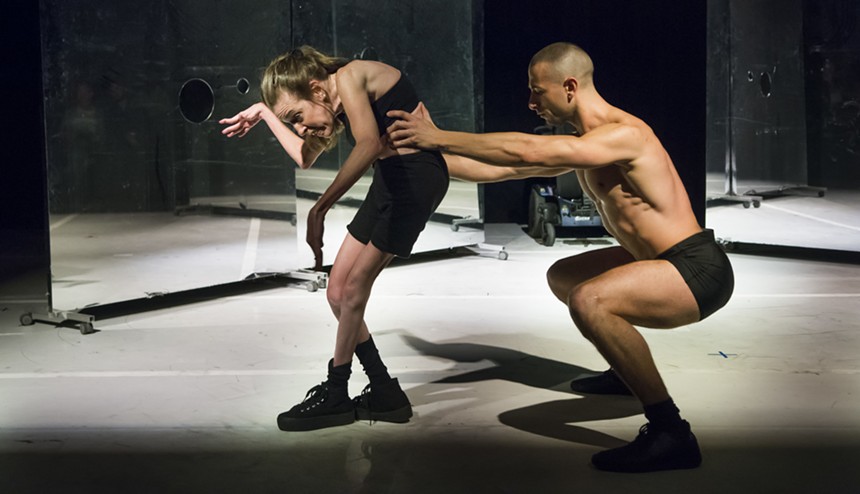
Pioneer Winter (right) performs Gimp Gait. Winter says "Ten Years From Now" invites the audience into the Pioneer Winter Collective's creative process like never before.
Photo by Mitchell Zachs
"'Through vulnerability comes transparency' is the number-one driving force of why I became an artist, more so after my attempted suicide, which led me to become a double amputee in 2015. The need to educate and inspire through entertainment became paramount — being a visual reminder that anything is possible as long as we still have air in our lungs and passion in our hearts, sprinkled in with hard work, determination, and drive. I yearn to be the person who leaves an audience member with the thought, 'If they can, I can as well,'" she says. "[Within the Pioneer Winter Collective], I am accepted for who I am: an Afro-Caribbean, gay, nonbinary, trans, femme, plus-size, double amputee. I'm not expected to conform to any societal norms of what we believe a dancer is. I'm appreciated and celebrated for my differently abled body. I am pushed to levels that I thought I could never achieve, and I am grateful to be in a company that celebrates all of my differences and honestly shows me that we're not that different at all."
De la Cruz says he's proud to perform Winter's choreography because each step is undoubtedly rooted in the aims of achieving justice and equity. As they see it, witnessing a Pioneer Winter Collective performance like "Ten Years From Now" functions as an invitation for audiences to question their own beliefs and act accordingly.
"When performing my own or other artists' work, I often wonder if the work is being interpreted in a political context. What I enjoy about performing Pi's work is that I almost never doubt that it is, in fact, very political. The context of the work is already grounded in equity and challenging the boundaries of justice," de la Cruz says. "I take pride in being part of something greater than my personal motivations. It not only gives a refreshing perspective to my own values, but it also allows me to feel a sense of activism, of perhaps having the chance to move someone in a way that shifts the needle, even just a tiny bit."
After the curtain closes on performances of "Ten Years From Now," Winter aims for audiences to have visceral, emotional reactions not unlike the cathartic responses Winter and this production's dancers have undergone throughout the creative process.
"The themes that are embedded in the work are universal. The bodies that you see onstage are real, unique, and bodies that you don't typically see onstage or hear stories from. There's something really particular about my work; there's an urgency to know ourselves better with every dance we make. I hope the audience comes away from our performance of 'Ten Years From Now' knowing themselves better," they say. "I hope that they feel hope. I hope that they feel horny. I hope that they feel angsty. I hope that they feel like calling someone who they haven't talked to in a while. I'm hoping that they have an emotional, real response to it. I feel like the work making it and revisiting it is really cathartic for me and for the dancers, but I also believe in sharing that catharsis with the audience."
"Ten Years From Now." 7 p.m. Wednesday, March 6, through Thursday, March 7, at Sandrell Rivers Theater, 6103 NW Seventh Ave., Miami; 305-284-8872; sandrellriverstheater.com. Tickets cost $10 to $25.

